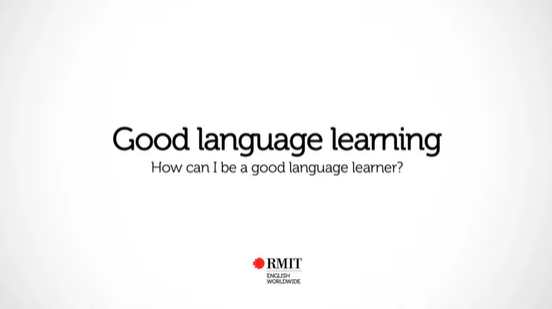To be a good language learner, you simply need to think about your learning, come to understand your own strengths and weaknesses, your likes and dislikes. If you find something difficult, you ask yourself why and try to find ways to do better next time. If you always seem to get low scores in vocabulary tests, you analyze your methods of studying words. If you don't like to study grammar in grammar books, find some other method of learning the rules of the language.
There's been a lot of research in recent years into what makes a good language learner. Here is a brief summary of some of the latest theories. A good language learner thinks about how she is learning. She tries to find out what works for her and what doesn't. If she doesn't understand the purpose of a particular exercise, she asks the teacher. The good language learner is willing to experiment and take risks.
For example, she will try out different ways of learning vocabulary until she finds the way that suits her best. She's also not afraid of making mistakes because she knows that these will help her. The good language learner is realistic, she knows that it will take time and effort to become proficient in English, and that there will be periods when she does not seem to be making much progress. The good language learner is independent. She does not expect to learn English just by sitting in the classroom and does not rely on the teacher to totally direct her learning.
The good language learner is organized and active. She uses her time to learn English sensibly and is always looking for opportunities to develop her language both inside and outside of the classroom. The good language learner has a balanced concern for communication and accuracy. Some students are good at communicating their thoughts, but they do not care that they make many mistakes in doing so. The good language learner on the other hand is concerned with both communicating and doing so as accurately as possible.
And an excellent way to reflect on your learning is to keep a language journal in which you write about your daily experiences in learning English. It can be a blog or pen and paper. Remember that everyone has their own learning style, so if you do something different and it works well for you, don't feel you have to follow the advice given by others.
One more thing, perhaps you have a learning strategy that is very successful for you. I'd love to hear about it, so please post it as a comment to this video so others can also benefit. My name is Jenny Priest, and I'm an English language teacher at RMIT English Worldwide.



